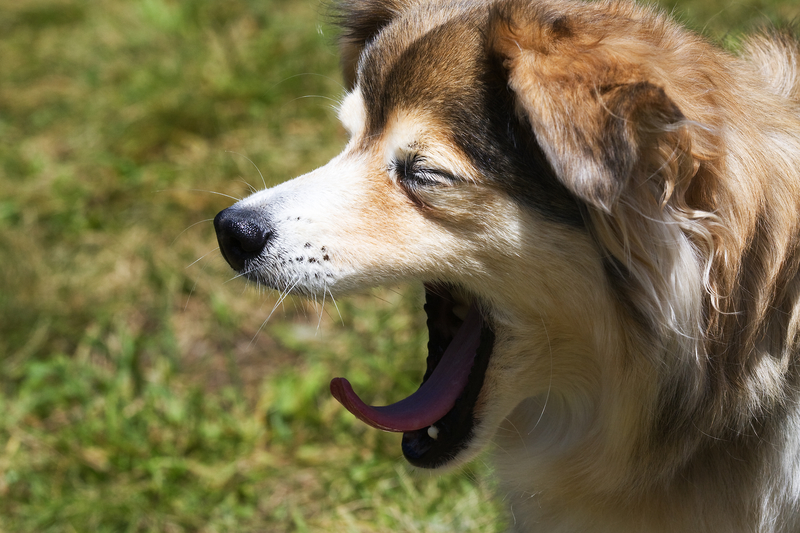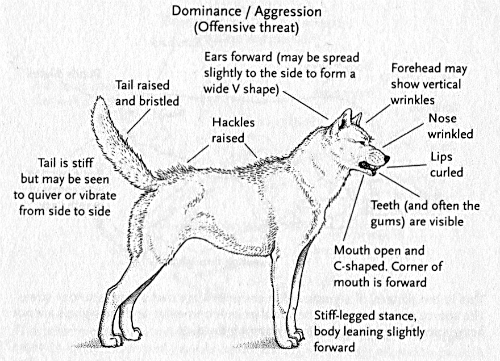The good news is that we can look to some human behaviors as guidance. For example, when you're stressed, you might feel lethargic, moody, sick to your stomach, unable to eat or any combination of those.
These are also common manifestations of stress in dogs. However, there are still additional and surprising signs of apprehension that you'll want to be wary of to avoid unwanted health or behavior problems:
Signs of Stress in Dogs
Aggression
If you notice your dog becoming easily agitated, a veterinarian should often be the first step to eliminate any underlying medical problems. Once medical problems are ruled out, you can then contact a Canine Behaviorist who will help you identify the cause of the stress.
Avoidance
If your dog is avoiding people or other pets and it is unlike him to do so, this could indicate his stress toward a particular stimulus. Sometimes, just as we do, dogs do need some time to themselves to relax but if this becomes common the behavior should be investigated.
Loss of appetite
It’s particularly upsetting when we notice our dogs not eating at all. Maybe you haven’t noticed a decrease in appetite, but you have noticed significant weight loss.
Gastrointestinal issues
Diarrhea and constipation, although more often related to some type of allergy or disease, can be connected to stress levels. If your dog has been constipated or had diarrhea for over 24 hours, then it’s time to contact the veterinarian.
Licking lips
Early on in a stressful situation, your dog may begin licking his lips, which can indicate stress, nausea, or anxiety.
Exaggerated yawning
Dogs yawn for many different reasons, but stress can be one of them, especially if the yawn is ongoing and extra-wide, or if it seems unusual.
Excessive sleeping
If your dog seems overwhelmingly tired or weak, you should contact your veterinarian.
How Can I Help My Stressed Dog?
Stay calm
Keeping your own stress level down is extremely important to preventing or eliminating stress in your dog. Your dog is able to sense your stress levels.
Exercise
Going for a walk or playing fetch are highly recommended.
‘Safe’ areas
Every dog should have an area in the home where she’s able to go when feeling stressed or anxious.
It's clear that dogs make up for their inability to speak with us by giving us a plethora of other signs that point to a stressful state. They count on us to help alleviate that stress and create a more calming environment. By keeping an eye out for these signs and others that you can read about on Rover, our dogs will snap out of their stressful mood and get back to being the loyal, loving creatures that we know them to be. Your doggy will appreciate it!










